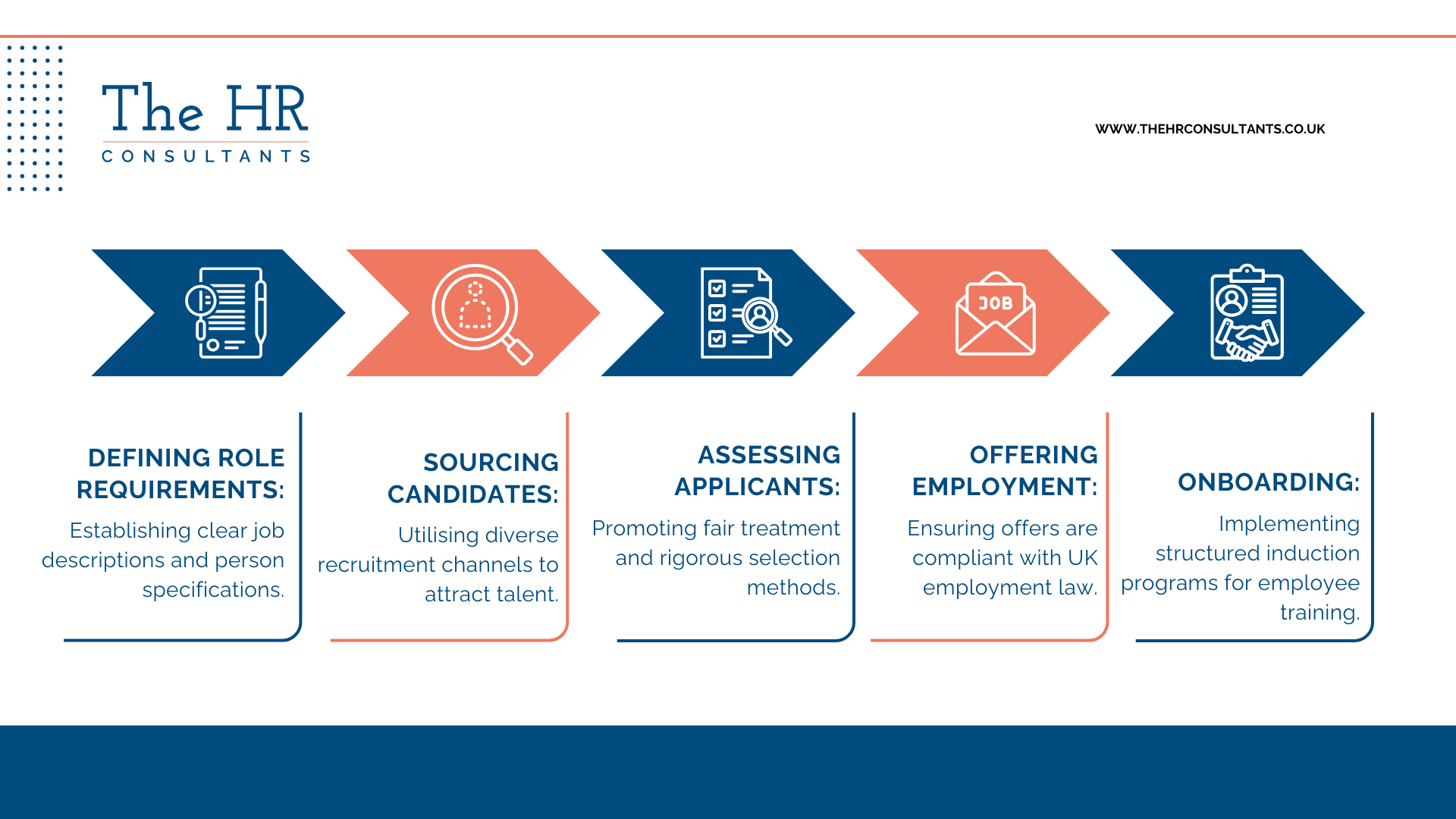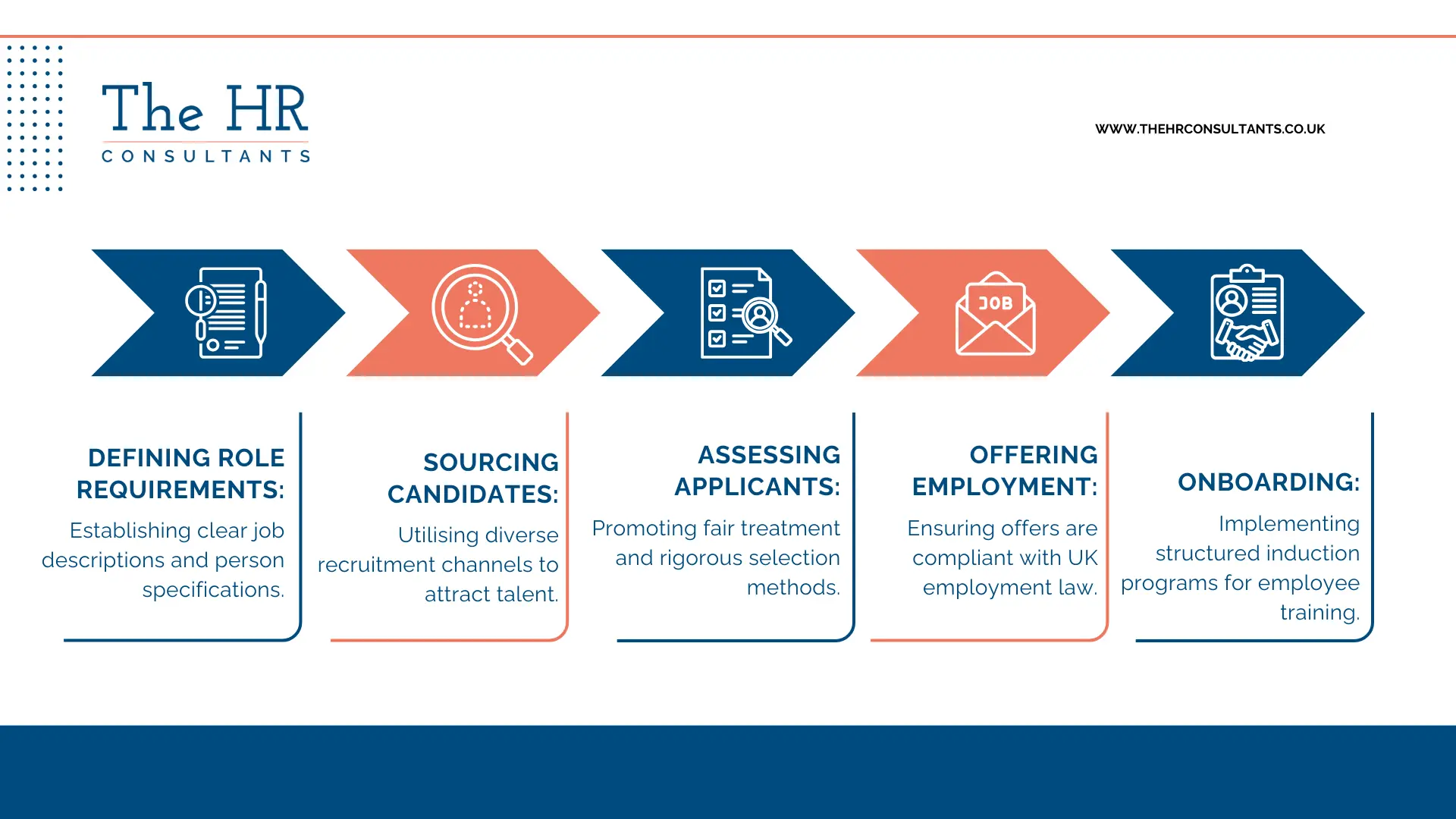There are so many areas of human resources that it may be difficult to know where to start when creating your employee handbook.
Rest assured, The HR Consultants can help you to decide what to prioritise. You can also read our comprehensive guide on HR policies here.
We delve into the varied types of human resource policies that shape the backbone of effective personnel management. Discover what these types of HR policies entail and how they create a template for your human resource management and success.
Introduction to HR Policies and Procedures
HR policies and procedures serve as the foundation of employee management, guiding organisations through a myriad of workplace scenarios. According to the Chartered Institute of Personnel Development (CIPD), the relevance of human resources policies has never been more pronounced.
The following policies not only address immediate operational needs but also ensure long-term resilience and adaptability in a rapidly evolving work landscape, as evidenced by the shifts towards flexible work practices and digital collaboration.
Comprehensive HR policies
Our comprehensive list of HR policies is informed by authoritative sources such as the CIPD, ensuring alignment with best practices. This section highlights the key HR policies and procedures, addressing workplace challenges with real-world examples.
If you're a small business, check out our Top 15 essential HR policies that may be relevant to you.
Dive into our curated list and explore the policies shaping today’s positive work environments.
Recruitment and Onboarding
In the realm of UK HR practices, effective recruitment and onboarding are pivotal. Nowadays, flexible working hours, remote working, and employment contracts are all key considerations here.
Here are the clear steps to ensure seamless integration with existing employees:
- Defining Role Requirements: Establishing clear job descriptions and person specifications.
- Sourcing Candidates: Utilising diverse recruitment channels to attract talent.
- Assessing Applicants: Promoting fair treatment and rigorous selection methods.
- Offering Employment: Ensuring offers are compliant with UK employment law.
- Onboarding: Implementing structured induction programs for employee training.

With a clear, staged process, the adaptation period can be shortened, and the new hire can start contributing to the company.
Diversity and Inclusion
When recruiting, attention to Diversity and Inclusion is the bedrock of any progressive HR policy, reflecting a company's commitment to a diverse and inclusive workplace.
""Leading organisations, such as Microsoft, set a precedent by reporting that approximately 50% of their workforce is ethnically diverse, showcasing a significant stride towards inclusivity.""
This statistic exemplifies the essence of what HR policies should aim for, showcasing the importance of creating an environment where employee relations can flourish.
Mental Well-being
Proactive approaches to employee engagement and mental well-being include a focus on employee relations, stress management programs, mental health days, and access to counselling services. Attention to these demonstrates a commitment to employee health beyond traditional benefits.
Forward-thinking companies that remove the stigma around mental health and consider each employee as an individual are far more likely to thrive in 2024.
Conduct and Ethics
'Conduct and Ethics' form the moral compass of an organisation. Employee conduct should go hand in hand with the policies and procedures of the company itself.
What is HR policy, if not a reflection of a company's core values?
A thorough HR policy on conduct and ethics not only outlines expectations but also actively shapes the cultural fabric of the workplace.
Employee conduct should come with a series of expectations that allow them to fit in with the ethos of the company. They should be aware of clear guidelines, policies and procedures for each of the following:
Employee expectations
Company property
Leave
Sexual harassment
Drugs and alcohol
Workplace violence
Disciplinary and grievance policies
Social media policy
Performance evaluation
An example of a strong ethical policy in the UK is The Co-op. From 2004, they refused to take part in animal testing for cosmetic products, a stand that eventually resulted in an EU-wide ban on such practices 13 years later.
Compensation, Benefits, and Time-off
Amidst a cost of living crisis, how can you ensure that your company's compensation, benefits and time-off strategies are fair?
Every industry is different, whether it's a commission-based sales role, or an hourly paid position. You can follow these pointers to make sure your employees are satisfied.
- Benchmarking: By regularly comparing your compensation and benefits to those in similar industries, you ensure that your offerings are competitive and fair. Benchmarking helps in identifying gaps in your current compensation structure and guides adjustments to meet or exceed industry standards, which is critical for attracting and retaining top talent, and a positive work environment.
- Transparency: Transparency in how compensation, benefits, and time off are determined and distributed is crucial. It cultivates trust and openness within the organisation. Employees who understand how their efforts contribute to their compensation, employee development and the overall success of the company are more engaged and motivated.
- Equal Pay for Equal Work: Ensuring that all employees receive equal pay for equal work is not just a matter of fairness but also legal compliance. Regular internal audits to identify and correct any disparities are essential. This practice supports a culture of equity and inclusiveness, where employees feel valued and respected regardless of their role, gender, ethnicity, or any other factor.
Workplace Health and Safety policy
In the UK, adhering to Workplace Health and Safety employment laws is vital for every organisation. Defined within HR policies and procedures, this policy encompasses guidelines ensuring a secure and healthy work environment.

Rooted in legislation such as the Health and Safety at Work etc. Act (1974), these human resource policies mandate risk assessments, safety training, and emergency procedures. Compliance demonstrates an organization's commitment to safeguarding its workforce and anyone on its premises.
Legal Framework and Compliance
Effective HR policies and procedures are grounded in understanding and adhering to specific employment laws and regulations, such as the Equality Act 2010 in the UK, which legally protects people against discrimination. It's essential for organisations to regularly review and update their human resource policies and HR procedures to ensure compliance.
However, given the complexity of employment law, seeking professional advice from The HR Consultants can provide tailored guidance to understand legal intricacies.
Always consult with experts to ensure your company policy adheres to applicable laws and effectively supports your organisational goals.
Developing and Updating HR Policies
The process involves a comprehensive review of the current list of HR policies to ensure they accurately reflect the latest legal requirements and workplace trends.
Try our guide on 2024 HR strategy for a more in-depth look at this.
Regular updates are crucial for:
- Compliance: Adhering to the latest employment legislation, such as changes in the National Minimum Wage or adjustments in discrimination laws, safeguards the organisation against legal challenges.
- Relevance: Modifying policies to accommodate new working practices, like remote work or flexible hours, enhances organisational agility and employee satisfaction.
- Engagement: Clearly communicated updates demonstrate to employees that their well-being and rights are prioritised, allowing for a positive workplace culture.
Illustrating this with examples of HR policies that have evolved—such as those on data protection in the wake of General Data Protection Regulation (GDPR) in 2016—highlights the importance of a proactive approach to HR policy development. This ensures not only legal compliance but also that HR practices reflect the values and needs of the modern workforce.
Technology’s Role in HR Policy Management
Technology plays a pivotal role in the management of HR policies and procedures, offering a blend of expertise and authoritativeness through advanced software tools. These platforms are endorsed by HR teams for their ability to streamline processes, ensuring that what are considered complex HR policies become more accessible and manageable.
For instance, software solutions facilitate the digitalisation of HR policy documentation, making it easier to update, distribute, and ensure compliance across the organisation. Moreover, technology aids in automating routine tasks, such as tracking policy acknowledgements and training completion, thereby enhancing efficiency.
This integration of technology into HR practices not only simplifies policy management but also significantly improves the execution and monitoring of essential HR policies and guidelines, ensuring that HR policies are consistently applied and adhered to across the board.
Conclusion
Understanding and implementing HR policies is fundamental to the smooth operation of any organisation. These policies, ranging from recruitment and onboarding to diversity, inclusion, and mental well-being, form the backbone of effective human resource management.
HR guidelines and human resource policies are not static; they evolve to meet legal requirements and adapt to changing workplace norms, underpinned by technology's role in streamlining HR processes.
Trust in this guide is rooted in adherence to authoritative sources, ensuring the information presented is both current and reliable. Embracing these policies is essential for fostering a positive, productive, and legally compliant workplace environment.
How can we help?
We offer a range of HR services that can help your business, from HR documentation to recruitment assistance. You can be sure of legal protection and a forward-thinking strategy. Stop drowning in HR jargon and leave it to the experts.
If you're looking for honest, transparent guidance, give us a call.
Frequently Asked Questions (FAQs)
What do people want to know about when searching for different types of HR policies?
What are the HR policies?
HR policies encompass a set of principles and procedures that guide how a company manages its workforce. They cover a broad spectrum, including recruitment, conduct, compensation, and diversity, aiming to ensure fairness, compliance with laws, and a positive work environment. For detailed explanations and best practices, consulting authoritative sources like the CIPD is advisable. Complex queries should be directed to an HR professional for tailored advice, ensuring company policies meet both legal standards and organisational needs effectively.
What are the 4 main categories of HR policies?
The four main categories of HR policies are Recruitment and Onboarding, Workplace Health and Safety, Conduct and Ethics, and Compensation, Benefits, and Time Off. These categories ensure a holistic approach to managing the employee lifecycle, from hiring and integration through to ensuring a safe and ethical work environment, managing employee grievances, and managing remuneration and leave policies.
What are strategic HR policies?
Strategic HR policies are designed to align human resources management with the long-term goals of an organisation. These human resources policies go beyond day-to-day operations and focus on integrating and reviewing HR policies and practices with the strategic objectives of the company's reputation. Examples of strategic HR policies include talent management, leadership development, and organisational culture initiatives. They aim to develop a workforce that can adapt and contribute to the organisation's success.
What is the biggest challenge facing HR professionals today?
The biggest challenge facing HR professionals today is navigating the complexities of the rapidly changing workforce and workplace dynamics. This includes integrating strategic HR policies that address remote work, diversity and inclusion, technological advancements, sexual harassment, and mental health. Adapting HR policies to these evolving demands requires a delicate balance between organisational goals and employee satisfaction and well-being. Crafting flexible, forward-thinking policies that can adapt to future changes is crucial for the success of any organisation."














